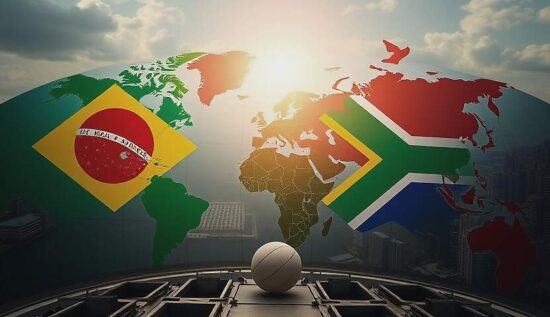Japan is portrayed as a typical status-quo power in Chapter 7, deeply embedded in liberal internationalism and the US-led order. Consequently, the Japanese are particularly concerned about the end of the unipolar moment, the rise of China and the prospects of a new multipolar order. According to the Munich Security Index 2025, the Japanese respondents were most worried about a multipolar world. On the other hand, Tokyo has been preparing for these geopolitical changes for a longer time than most others. Moreover, numerous new measures (referring to the QUAD) indicate that Japan is ready to defend itself and the order it values.
In contrast, Brazilian leaders, unlike Japan, see the emergence of a multipolar new order as an opportunity to reform outdated power structures and give a stronger voice to the global South, as mentioned in Chapter 8. During its G20 presidency last year, Brazil prioritized reforms of global governance, along with other priorities of the global South, such as poverty reduction and food security. With its significant natural resources, Brazil has the potential to further boost its global influence and shape debates on food, climate and energy security. However, the maintenance of Brazil’s traditional policy of non-alignment “could become more challenging in the face of rising geopolitical tensions and especially due to a second Trump term, with its implicit threat of a new Monroe Doctrine and exclusive US dominance over all of Latin America.”
South Africa is the focus of the last chapter, Chapter 9. Its enthusiasm for multipolarity cannot be separated from its criticism of the existing international order, particularly the non-representative international institutions. Pretoria regularly criticizes Western states for the selective application of international law. South Africa was long seen as a “natural leader” of Africa and an international moral exemplar. However, with the rise of anti-Western sentiment in the country and the decline of human rights and international law promotion, the country has also lost international respect.
The authors conclude that “visions of multipolarity also polarize.” This makes it increasingly difficult to peacefully adapt the existing order, avoid new arms races, prevent violent conflicts within and between states, enable inclusive economic growth and jointly address common threats like climate change, which the respondents consistently rate as high on the Munich Security Index.
As the “great and not so great powers” cannot address these challenges alone, their cooperation will be decisive. That many in the international community still value the rule-based multilateralism is evident in the recent adoption of the Future Pact. However, the world could benefit from a bit of “de-polarization.” 2025 will show whether this is possible or if the world will become even more divided.





